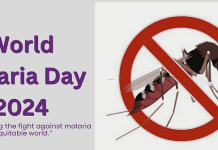Having clocked 35 years in the supply and distribution of top-notch pharmaceutical products in the Nigerian market and beyond, Alpha Pharmacy has remained a consistent player in the niche market where it has focused more on critical areas of providing very rare life-saving products. In telling the Alpha story, its Managing Director, Pharm. Ike Onyechi, also expresses optimism in the ability of the Nigerian pharmaceutical industry to compete with the world’s best, if only the right steps can be taken, especially from the government’s angle. In this exclusive interview with Pharmanews, Onyechi gives insights into how countries like India and China have developed their pharmaceutical spaces and how the same can be replicated here in Nigeria. Excerpts:
How would you describe your journey so far in the pharmaceutical industry?
Fulfilling. That would be my first reassuring word. It is also exciting and challenging, but there is still a lot of rooms to do much more. And that is what I call the excitement there.
I went through the hospital, through the industry and settled for the community. From the community, I went back to the academia and did quite a number of other courses: MBA, West African Postgraduate Fellowship and other fellowships and from there, I still continue to be in the academia because I am still offering part-time services to the West African Postgraduate College. I also train interns who come here to learn. It’s quite exciting and there is still a lot more to do.
We have covered most of the active areas of Pharmacy – industry, community, hospital and now we are into research. We have done research into some herbal products and we also cultivate some herbal medicinal plants. We are doing that on our farm. You can see the excitement we are talking about. Our journey has been quite eventful. God has helped us to touch one or two things in all modesty.

Would you say the Nigerian pharma industry has lived up to its expectations, in terms of the provision of quality drugs to the Nigerian people?
Yes and no. Yes because, compared to our neighbours, other African countries, Nigeria has done much more in terms of production for a long time from the 70s through the 80s, when some government policies encouraged some multinationals to do production. We have also done fairly well in the manufacturing sector.
But, speaking globally, we have done so little. We can humour ourselves from here to Jericho and whether we like it or not, the world is becoming smaller – a global village. So, speaking from global benchmarks, we have a long way to go.
What would you say is the biggest challenge facing the pharmaceutical industry in Africa?
If I take a benchmark from what other people are doing, I will first blame government policy inconsistencies. During an FIP congress in India, many years back, the speech of the prime minister was highly emotional when she outlined how India as a country had developed its pharmaceutical industry by encouraging their people to make huge investments. She was virtually marketing India to the whole world.
She understood the contribution of the pharmaceutical industry to their GDP. She was emphatic about what this industry was doing to the economy of her country and they invited the whole world in such an emotional opening ceremony.
There was a strategy set down by the government of India. They had a strategy; they had a roadmap. The trajectory was clear to them. They knew what they were getting and knew where they were going. We need to have such a situation in which government will not only verbalise or vocalise what could be done – like the petrochemical industry plans that we’ve had for about 40 years. While I was in the pharmacy school in the 70s, we were taught how to get APIs from the petrochemical industry and we were optimistic because, then, we were having oil boom. Aside from oil boom, we had bursaries, scholarships; everywhere was bubbling and oil was flowing.
We were told that in a couple of years, we would get APIs. There was a lot of hope in the 70s. Where are we now? 40 years after I left pharmacy school, our petrochemical industry is nothing to write home about. We need to do more. And being an oil-producing country, we have the wherewithal to do that.
There are claims that Nigeria is undoubtedly the hub for pharmaceutical marketing in West Africa. What do you think is responsible for this?
It’s obvious. The population is the first attraction. When you drop a piece of sugar, ants must gather. Without pretending to be too hard on Nigeria, we are a hub. We produce more than other countries in the region. Besides pharmaceuticals, even in cosmetics and toiletries, we are doing well.
If you go around West Africa, you will see that some of our products are doing very well. We are not sleeping here; but compared to the global community, we do not deserve to be called a hub, production-wise. Because we have a huge population, we are wealthier and import a lot; and so, many neighbouring countries come to buy from us. A lot of things can originate from here, if we had deployed the resources we have in this country in a productive pattern.
What can you say is the mission of Alpha Pharmacy in the Nigerian pharmaceutical space?
Our mission is to bridge gap. By the time Alpha Pharmacy was founded, it was just about the import policy era in 1985. Many did not know that it marked the beginning of the downward journey of this economy. There was shortage of foreign exchange then. There was the need to ration what we had. Even those who produced did not have all the raw materials they needed and those who imported were focusing on areas where they would make more profit.
There was a gap in the supply chain. That was when Alpha came on board. We pushed and positioned ourselves to fill up the more critical areas of need. That was how we developed our passion for the rare ethical drugs for which we are known. Those items were beginning to be scarce then. The vaccines, the plasma substitutes, the plasma expanders, the anti-snake – and I also had a stint with most of them working for a German company Hurst. It was a natural flow for me and I found that I had a link to where those things could be found.
So, it didn’t take me time to go overseas and start getting them. And Alpha landed on that space, working with tertiary institutions that needed those critical care drugs. That was how we started and that was what was happening in the environment when we were birthed. We found our niche in battling and tackling the problem of the environment. We specialised our services and also wanted to ensure that genuine drugs are made available. And so when you talk about our mission and vision, it is to make sure that genuine drugs, devices and equipment are made available for the improvement of the quality of life of the people.
How would you assess the impact of COVID on the pharmaceutical industry, all over the world?
There is massive disruption. The supply chain logistics have been disrupted globally and the impact is still reverberating anyway. Most of the raw materials and active pharmaceutical ingredients used in the industry come from Asia, specifically China, and that’s where COVID started. From that point, you find that disruption from China gets to India and flows into Europe and is affecting Nigeria.
It is important to start doing our own structural adjustments for this condition. COVID-19 has impacted very negatively on the world. However, it has also helped to ascertain the true state of our health system. The secretary to the federal government, Boss Mustapha, said he was shocked to realise the abysmal nature of our health institutions in the process of tackling the pandemic. A lot insufficiencies were discovered in terms of availability of drugs, personnel and equipment. The good thing is that it has made government to realise that they need to make more investment in the health sector.
The Central Bank recently offered a 100 billion naira health intervention fund for pharmaceutical companies. Do you think this is a step in the right direction?
Why not? And as Oliver Twist, we will definitely ask for more. The have realised that things were very bad. It is very much welcome but we also need to know that, as good as it is, in terms of playing globally, it is good for us to know what others are doing. The amount, which is about 200 million dollars, is very inadequate compared to the needs of the sector. India alone is investing 1.8 billion dollars just to develop APIs.
India can face any country squarely in the whole universe. Though they have a deficiency – as China has overtaken them in the production of APIs – They know that if China is closed down today, they would be seriously affected and that is the reason they are investing close to 2 billion dollars in the development of APIs. There will be more funds needed by the Nigerian pharmaceutical industry.
We understand Alpha Pharmacy just celebrated its 35th anniversary. What are the highpoints of this milestone?
We turned 35 but don’t forget that COVID-19 is still hanging the celebration. We set out on a mission – a mission to be a relevant part of the health system in Nigeria. We chose to play in the niche area of getting those rare life-saving things that not everybody is interested in because many of them are not attractive or profitable as much as the soft-sell items. We decided to pitch there and develop and by the grace of God, we have been able to achieve that reasonably well.
We looked at infant and maternal mortality and some of the health areas that need help and developed some of our products along those lines. We have Oxytocin, which has turned out to be the most-used in the country. It has been very effective in the management of post-partum haemorrhage. We also have magnesium sulphate which takes care of some of the cardiac complications that come up with pregnancy and childbirth. We have very specialised products that are focused on intensely solving these issues.
What words do you have for Nigerian pharmaceutical companies who go into partnership with foreign firms?
Partnerships are in different shapes and forms. They should be more careful and make sure they have legal and other professional advisers, especially the forensic legal guys who have a wider knowledge of the legal profession. This is because if I, for instance, have an issue with my suppliers from overseas, it is the law of their lands that would apply. So, some partnerships place the Nigerian at a disadvantage even before he or she starts.
We should know what prevails internationally before venturing into any form of partnership. One of our sisters has a challenge with foreign partners. For me, the government and those of us in the private sector should rally round her. If there are more Nigerian investors to be on her side, I would be. Because law or no law, we should not allow her to cry alone or go down. She has impacted this space very positively and that does not preclude her from making any mistake. She needs to get all the support because injustice done to one is injustice done to all.
If there is any injustice, we shall make sure it is redressed. If there are errors or mistakes on her own part, we would find how to stand behind her to correct it so that she can continue on her entrepreneurial drive. We need to come around her and help her.














tadalafil 40 mg from india: http://tadalafilonline20.com/ tadalafil gel